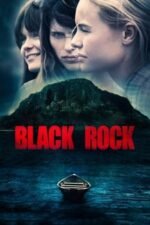Lost & Found: Why Remote Islands Haunt Our Imagination (and Cinema)
Okay, so we’ve all seen them, right? Those cinematic islands – lush, forbidding, isolated… they just get under your skin. They're more than just pretty backdrops; they represent something primal in our collective imagination. And I realized recently, flipping through some old film notes (as one does!), how consistently these remote locales pop up across genres and decades. It’s fascinating!
What is it about an island, cut off from the mainland, that sparks such compelling stories? I think it's a potent combination of things: confinement, opportunity for reinvention, and a blank slate onto which we can project our deepest fears and wildest hopes. Think about The Most Dangerous Game. That island isn’t just a place; it’s a crucible where civilization crumbles and the darkest aspects of human nature are laid bare. The beauty of the landscape only amplifies the horror of Zaroff's twisted game – a stark contrast that really sticks with you.
And then you have films like Papillon, where the island becomes a symbol of inescapable punishment, but also a catalyst for unexpected connection and resilience. It’s a place stripped bare, forcing characters to confront themselves and each other in ways they never would back in “civilization.” It's almost as if the isolation demands authenticity.
What I love too is how these islands can be used to explore cultural clashes. Profound Desires of the Gods, for example, uses a remote island setting to examine the complexities of progress and tradition – a theme that feels incredibly relevant today. It’s not just about “bringing civilization” but about understanding what's lost in the process.
Of course, we can’t talk about isolated islands without acknowledging the sheer fun of monster movies! The Killer Shrews leans into the absurdity of it all, using the island as a pressure cooker for genetic experiments gone wrong. It’s pure B-movie delight, but even that film taps into our anxieties about the unknown and what lurks beyond the familiar.
Even something seemingly quieter like Nanni Moretti's Caro diario uses an isolated island visit to explore themes of loneliness and connection – a gentle reminder that sometimes we need to step away from the noise to truly understand ourselves.
So, next time you’re looking for a film that really digs deep, consider one set on a remote island. They offer more than just stunning visuals; they provide a unique lens through which to examine what it means to be human – especially when stripped of all our usual comforts and crutches. You might just find yourself lost… in the best possible way.




































